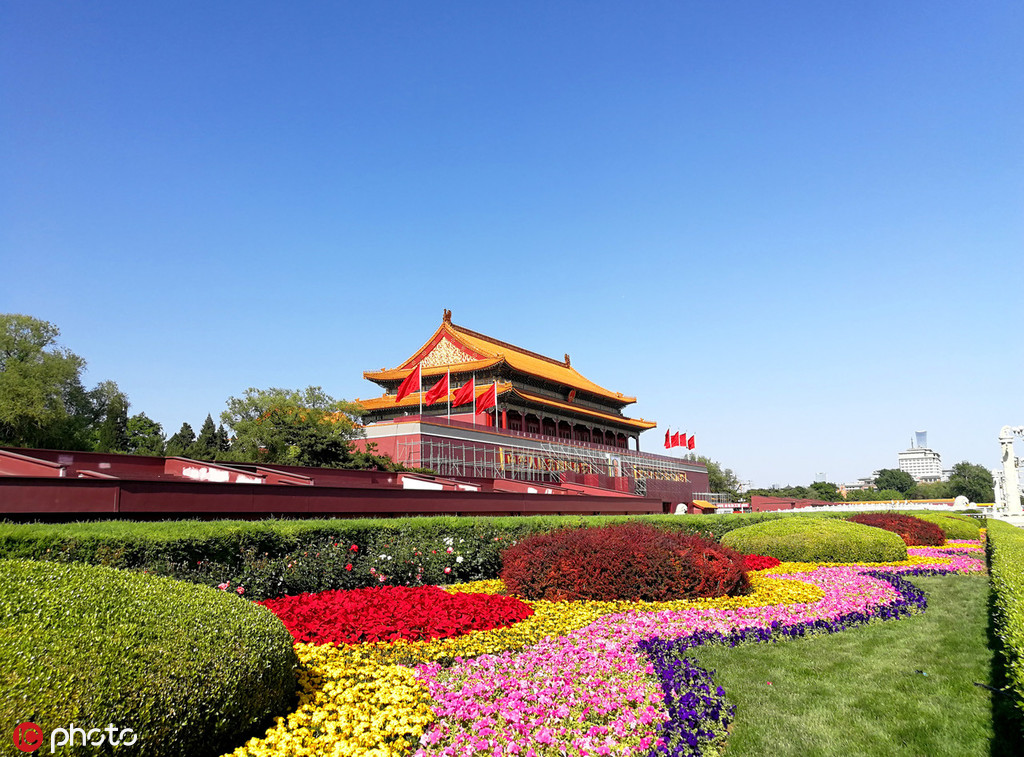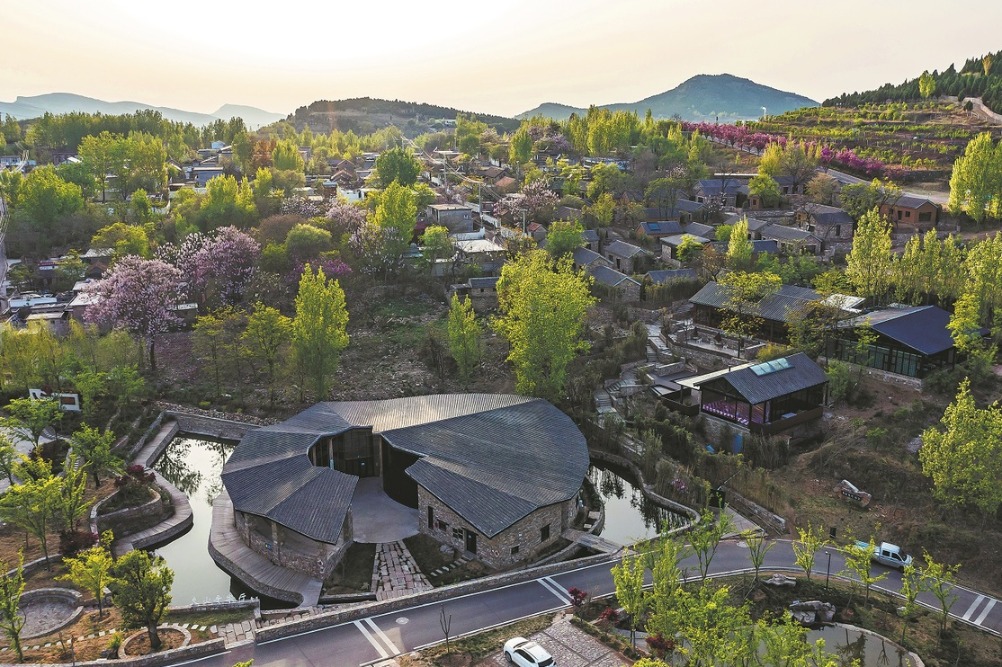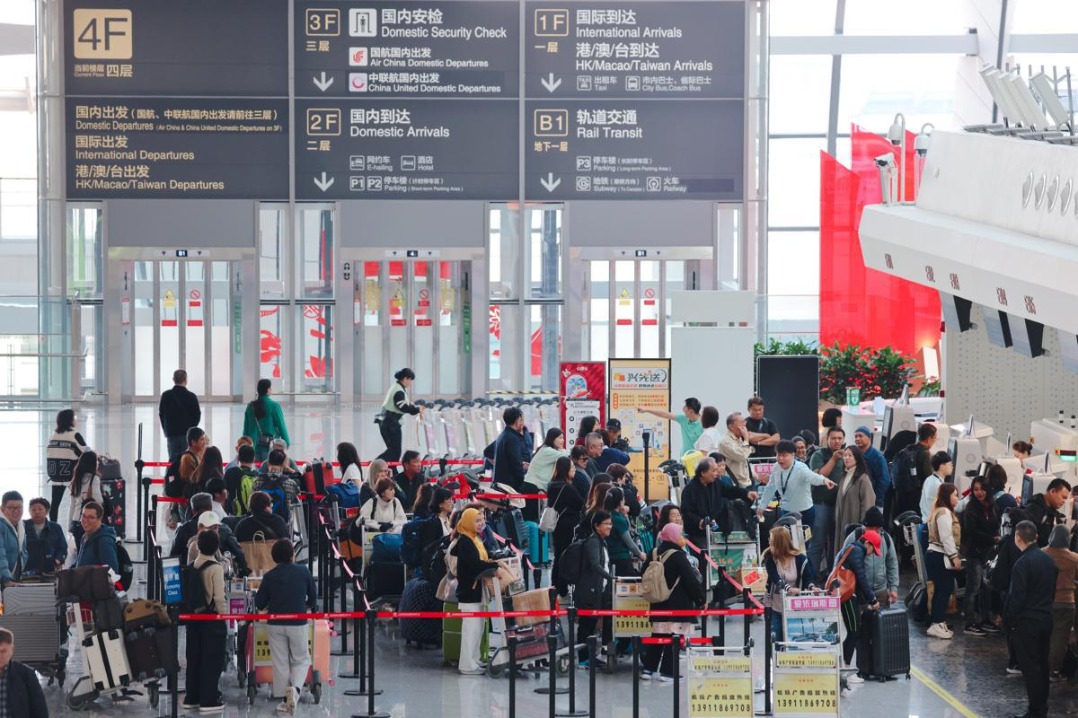World can expect a more open, inclusive China: China Daily editorial


On this very day 70 years ago, the People's Republic of China was founded, initiating a time different in nature from the various dynasties in Chinese history.
While celebrating the 70th anniversary of its founding, it is of particular importance to know why the past seven decades are special for this country and its people.
Seventy years are an instant in the more than 5,000 years of the Chinese civilization, but the past 70 years are special. Not least, because they have seen the founding of the New China, which has enabled the Chinese people to stand up and the nation to stand on an equal footing with other countries; the advance of reform and opening-up which has enabled this country to shake off poverty and become prosperous; and the start of a new era, in which the Chinese nation is finally becoming strong enough to realize its great rejuvenation.
Despite the Chinese nation's long history of civilization and past glory, the first generation of Chinese leaders who founded the New China knew that the country must have a political system suitable for its development and an appropriate path for it to progress.
Under their leadership and with the efforts of the Chinese people, the nation was dragged out of its dire straits after war and turmoil, and the privation of its people was basically ended.
But Rome was not built in a day.
Despite the confrontation of the two camps during the Cold War, self-reliance and hard struggle laid a solid foundation of heavy industry and agriculture for the country's further development.
Although it was not until the reform and opening-up policy was launched in the late 1970s that China found the right track for its economic integration with the world and for its sound and sustainable economic growth and social progress.
Socialism with Chinese characteristics has turned out to be the right model for China's overall development.
Reform and opening-up has dovetailed the country's economic growth with the trend of globalization, which has provided the country with what it needs for the development of a modern economy while the design of socialism with Chinese characteristics under the leadership of the Communist Party of China has equipped China's development with the synergy and cohesiveness it badly needs for social and political stability.
China's per capita gross domestic product was only 119 yuan ($17) in 1952. By 2018, it had increased to 64,600 yuan. And China's total GDP now makes up nearly 16 percent of the world's total.
What this country has achieved in the past seven decades, especially after the reform and opening-up policy was adopted, points to the fact that had it not been for its integration with the world economy, China would not be what it is today — the world's second-largest economy.
Nevertheless, China is not a passive beneficiary of economic globalization. With its double-digit economic growth rate for more than 30 consecutive years, China's contribution to the world economic growth has been more than 30 percent for several consecutive years.
It is no exaggeration to say that China's development has already become an important part and a major driver of the world economy.
With an increasingly strong economy, China has never forgotten its mission as a responsible big country.
That explains why China has adopted concrete measures to open its door wider to the world, and has been doing what it can to pit multilateralism and free trade against the prevailing unilateralism and trade protectionism.
That explains why President Xi Jinping put forward the Belt and Road Initiative, with which China intends to help many countries, especially developing countries, with their infrastructure construction for better connectivity, and which will hopefully promote balanced development of the world economy, from which more countries will benefit.
That also explains why China has proposed the development of an international community with a shared future, in which a fairer world order and better global governance will help more countries and more people share the fruit of world economic growth.
As a beneficiary of the globalized world economy, China has every reason to further its opening-up — to shorten the list of sectors that are not open to foreign investment, to implement a new law to facilitate foreign investment, to gradually open its insurance and financial sectors to foreign investment and so on.
When China and its people celebrate the 70th anniversary of the founding of New China, the world should be assured that it will have an even more open and inclusive China standing on the side of multilateralism and free trade.
- Sam Hou Fai appointed Macao chief executive
- Pet Fashion Week kicks off in Shanghai
- China sees 10.49m increase in urban jobs
- China prepares for upcoming high season in aviation industry
- 31st Yangling Agricultural Fair attracts 1,800 enterprises
- Lawmakers to meet early next month to deliberate draft laws




































